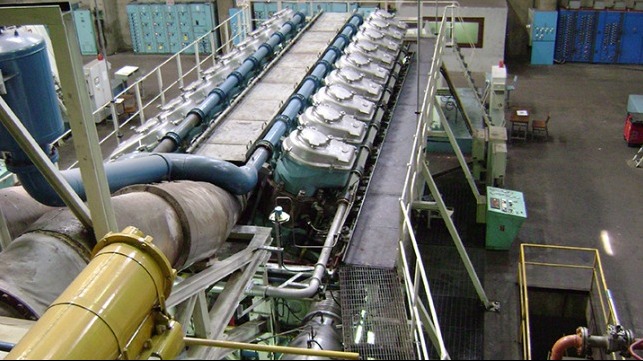Industry Consortium to Develop Medium-Speed, Ammonia-Fueled Engine

An industry partnership with research institutes has begun the AmmoniaMot project to develop possibly the first dual-fuel, medium-speed engine capable of running on diesel fuel and ammonia. Initiated by MAN Energy Solutions and supported by the German Federal Ministry of Economics and Technology (BMWi), the aim is to define the steps necessary to produce an engine that could become a key step in the future of the shipping industry.
The project which will run for three years also includes the University of Munich, Neptun Ship Design, WTZ, and Woodward L’Orange as project partners. MAN had previously announced that it will deliver ammonia-fueled engines by 2024 and by working with this partnership they expect to transfer the technology to large-bore, four-stroke engines and prepare for commercial development and production.
“MAN Energy Solutions views this project as closely aligned with its own strategy for developing sustainable technologies and welcomes the opportunity to work with external partners,” said Dr. Alexander Knafl, Head of R&D, Four-Stroke Engineering, Augsburg, MAN Energy Solutions. “For us, the path to decarbonizing the maritime economy starts with fuel-decarbonization and, in this context, ammonia is an excellent candidate in that it is carbon-free and eminently green when produced from renewable electricity sources.”
Among the efforts planned for the project, the University of Munich will employ a rapid-compression expansion machine to establish the fundamentals concerning the combustion of ammonia and will develop, together with MAN, the combustion models necessary for fast adaption of the technology to different engine sizes. Neptun Ship Design will be responsible for analyzing international regulations to ensure the technical and safety requirements for an encapsulated, modularized fuel system.
According to the partnership, scalable components are a prerequisite for the introduction of ammonia engines in shipping. A prototype of the fuel system itself will be used on the test engine at WTZ. Neptun will work in close cooperation with MAN on a roadmap regarding which steps are necessary to use ammonia engines with all necessary ancillary systems in new ships and conversions.

that matters most
Get the latest maritime news delivered to your inbox daily.
WTZ will utilize a high-speed test engine to develop a combustion concept for the new engine. This will be done in close collaboration with MAN and will also form the basis for defining any requirements for exhaust-gas aftertreatment. Woodward L’Orange will produce the injection system for the ammonia tests.
“With the DNV classification society forecasting approximately a 30 percent share of the maritime fuel market for ammonia by 2050, there is a general need for successful engine projects to display ammonia’s viability,” said Christian Kunkel, Head of Combustion Development, Four-Stroke R&D, MAN Energy Solutions. “There is little doubt that ammonia will become an important carbon-free energy carrier and thus will contribute to decarbonizing the maritime sector. The AmmoniaMot project will deliver the base for future, commercial, four-stroke engines, which will be key in legitimizing ammonia as a fuel and furthering the maritime energy transition.”
